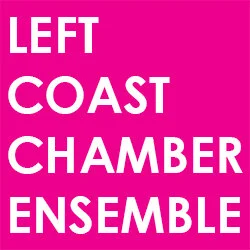I am the producer of Beyond 2020: Microtonal Music Festival. See below for festival schedule.
Friday, February 28
Concert, 7 p.m.New Hazlett Theater
John Schneider, solo guitar, performing works by Lou Harrison, Harry Partch and John Schneider
Brightwork newmusic from Los Angeles plays music by Eric Moe, Amy Williams, Federico Garcia-De Castro, and Mathew Rosenblum
Featuring video projections by artists Barbara Weissberger, Aaron Henderson, Jeremy Boyle, Mareike Yin-Yee, and Marc Sabat
Saturday, February 29
Symposium Session, 10 a.m. – 1 p.m.
Room 132 Music Building
Recent Scholarship on microtonal music by John Jansen, Taylor Brook, Robert Lopez-Hanshaw, Nicholas Stevens, Paul Miller, Thomas Nicholson/Marc Sabat
FREE Concert: Microtonal Pittsburgh, 2 – 5 p.m.
Frick Fine Arts Auditorium
Alia Musica, Kamratōn, NAT 28, Lindsey Goodman, Nuiko Wadden, WOLFTRAP, Ted Mook, Pauline Kim Harris, Aaron Myers-Brooks. Including music by Catherine Lamb, Burr Van Nostrand, Tristan Murail, Curtis Rumrill, Brian Riordan, Jason Belcher, Ezra Sims, James Tenny and others
Concert, 7 p.m.
The Andy Warhol Museum
MikroEnsemble from Finland performs by works by Veli Kujala, Juhani Nuorvala, Kyle Gann, Devon Tipp and others
Ray-Kallay Duo presents new works by Jason Barabba, Nick Norton, Mathew Rosenblum, Dylan Mattingly, and Sean Friar
Sunday, March 1
The Andy Warhol Museum
Pre-Concert Symposium Session, 6 –7:30 p.m.
John Schneider (Keynote), Del Sol String Quartet and Johnny Reinhard
Concert, 8–10 p.m.
FretX Guitar Duo (Mak Grgic and Daniel Lippel, guitars) performs works by Agustín Castilla-Ávila, Helmut Lachenmann, Jeffrey Holmes, Dan Lippel, and Laura Schwartz
Del Sol String Quartet plays music by Wen Deqing, Ben Johnston, and Michael Harrison
Featuring video projections by artists Delanie Jenkins, Lenore Thomas and Ivette Spradlin, Scott Turri, and Michael Morrill





















